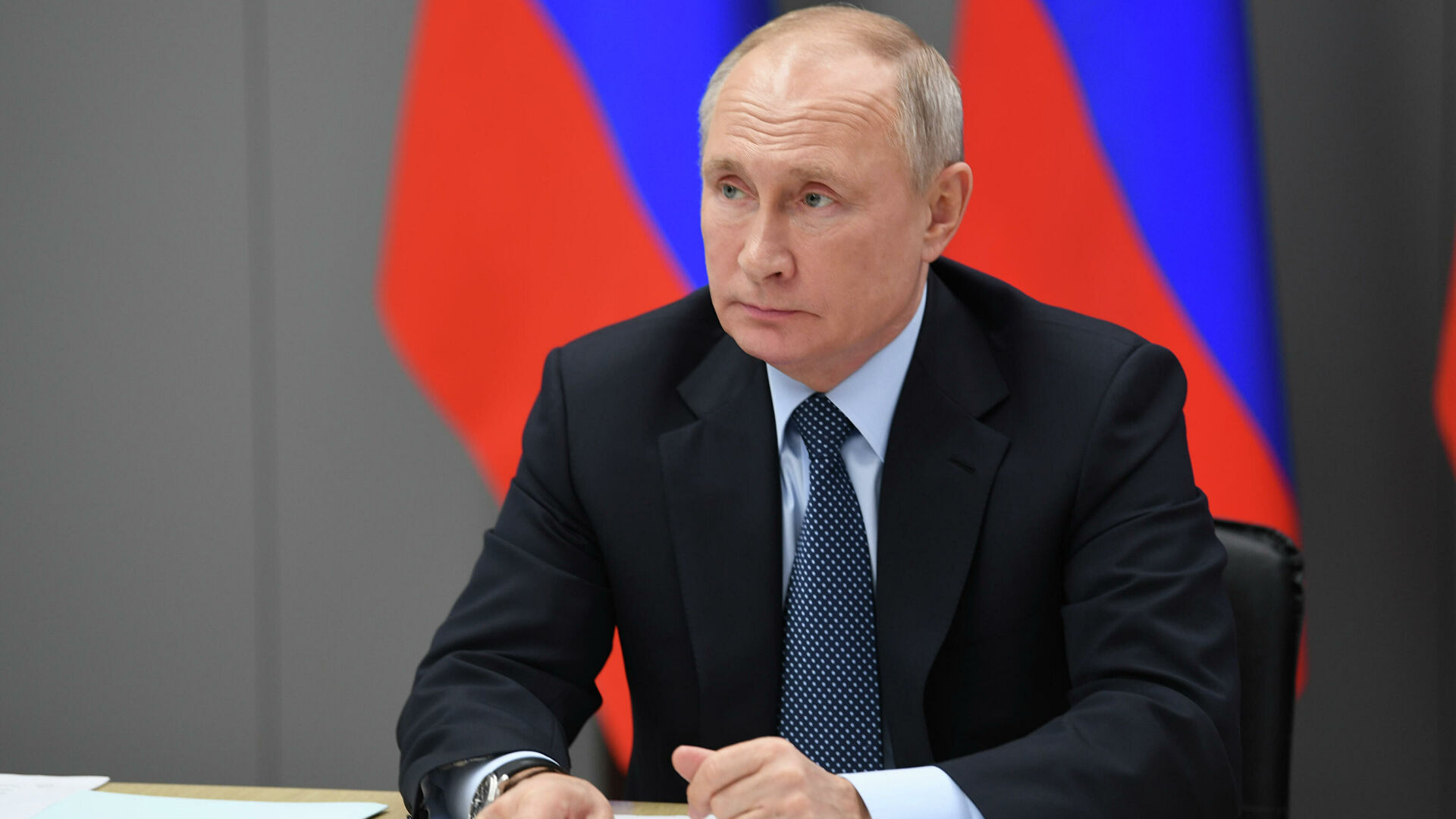Russian President Putin Says US is to Blame for Tensions in Europe
21.12.2021 14:44
 Russian President Putin Says US is to Blame for Tensions in Europe
Russian President Putin Says US is to Blame for Tensions in Europe
The United States is to be blamed for the escalation of tensions in Europe, Russian President Vladimir Putin said on Tuesday.
During his speech at a Russian Defence Ministry board meeting, Putin said that Moscow will take adequate military-technical measures in response to the unfriendly steps by the US and has every right to do so.
"As I have already noted, in the event of the continuation of the obviously aggressive line of our Western colleagues, we will take adequate retaliatory military-technical measures, and react toughly to unfriendly steps", the Russian president said. "And, I want to emphasise, we have every right to do so, we have every right to take actions designed to ensure the security and sovereignty of Russia".
Putin additionally suggested that it might have been the "euphoria" from "the so-called victory in the Cold War" that prompted Washington to conduct its "anti-Russian policy". According to him, the United States failed to make proper conclusions after the Cold War.
'Equal and Indivisible Security in Europe'
The Russian president also said that Moscow does not require any special conditions and stands for equal and indivisible security in Europe. However, the West's actions continue to prompt concerns in the Kremlin.
"The buildup of US and NATO military forces directly on Russia's borders, as well as by the holding of large-scale exercises, including unplanned ones, cause serious concern", Putin said. "We are extremely concerned about the deployment of elements of the US global missile defence system near Russia".
Putin's remarks come as Russia awaits a "clear and comprehensive" response from the US to its security proposals, which include NATO not placing offensive weapons in Eastern Europe. The Russian president underlined that if NATO infrastructure moves further and appears in Ukraine, the flight time of missiles will be reduced.
"If the US and NATO missile systems appear in Ukraine, then their flight time to Moscow will be reduced to 7-10 minutes, and with the deployment of hypersonic weapons - to five [minutes]", Putin told military officials.
The United States must understand, Putin stressed, that Russia has nowhere to retreat given its plans in Ukraine.
Putin reiterated the demands of the security guarantees, stressing that it was US President Joe Biden who proposed to appoint envoys for negotiations on stability during their December conversation on the situation in Ukraine.
"There should at least be legally binding agreements, not just verbal assurances. We know the price of such verbal assurances, words, and promises", Putin asserted.
Security Talks
Earlier, the White House voiced its readiness to engage in diplomacy with Russia, saying that the dialogue should be based on reciprocity and take into consideration American concerns regarding Russia's actions.
However, according to Russian Foreign Minister Sergei Lavrov, the US is yet to articulate its "concerns" to Moscow.
"As for the question of whether we are ready to discuss Washington's concerns, we are ready to discuss everything, but so far we have not received such concerns", Lavrov told reporters Tuesday.
The Russian foreign minister confirmed that the White House had signalled its readiness to start the dialogue, and there is an understanding on the format of the future negotiations.
Moscow has been demanding a response from the United States and NATO concerning its security proposals. So far, several countries have already voiced criticism of the suggestions, calling them "unacceptable". For its part, China has weighed in on the security proposals, noting that they reduce the risk of conflict and defend global and regional strategic stability.
Responding to those who view the security proposals as an "ultimatum", Vladimir Putin said that is not the case.
